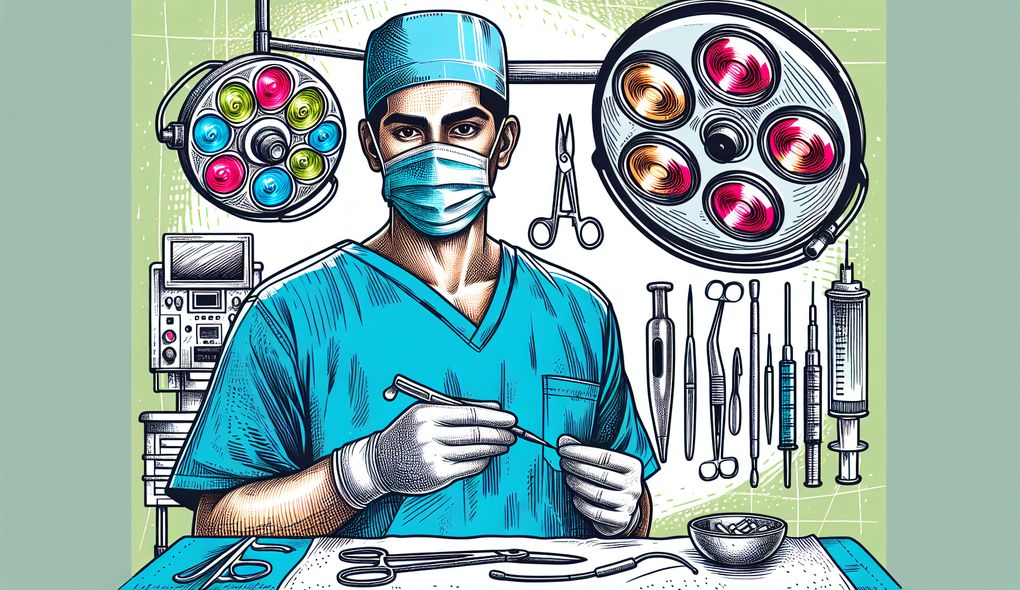How do you build rapport and communicate effectively with patients?
SENIOR LEVEL

Sample answer to the question:
To build rapport and communicate effectively with patients, I believe in creating a warm and welcoming environment. I greet patients with a smile and introduce myself, ensuring they feel comfortable and at ease. I actively listen to their concerns and actively engage in conversation, showing genuine interest in their well-being. I explain medical jargon in plain language, ensuring they understand their condition and treatment options. I also maintain open and transparent communication, providing regular updates and answering their questions. Through my empathetic approach, I build trust and establish a strong rapport with patients.
Here is a more solid answer:
Building rapport and effective communication with patients is crucial in my practice as a cosmetic surgeon. Firstly, I strive to create a welcoming and comfortable environment by greeting patients warmly and introducing myself. I establish open and transparent communication by actively listening to their concerns and addressing them with empathy. I take the time to explain medical terminology in plain language, ensuring patients understand their condition and treatment options. Additionally, I manage patient expectations by discussing realistic outcomes and potential risks of procedures. I make myself available to answer any questions and provide regular updates throughout the treatment process. Furthermore, I work well under pressure, remaining calm and composed during emergencies and high-stress situations. I prioritize patient safety and ensure that they feel supported throughout their surgical journey.
Why is this a more solid answer?
The solid answer provides specific examples of strategies for building rapport and communicating effectively with patients. It addresses all the evaluation areas from the job description, demonstrating strong interpersonal and communication skills, the ability to manage patient expectations, and the capability to work under pressure. However, the answer could still be improved by including more details and examples.
An example of a exceptional answer:
In my practice, I have found that building rapport and effective communication with patients is based on three fundamental principles: trust, empathy, and education. Firstly, I aim to establish trust by demonstrating professionalism, integrity, and confidentiality. I create a safe and non-judgmental environment that encourages open communication. Secondly, I approach each patient with genuine empathy, recognizing that undergoing cosmetic surgery can be emotionally challenging. By actively listening to their concerns and fears, I address their emotional needs and provide the necessary support. Lastly, I prioritize patient education, ensuring they have a thorough understanding of their condition, treatment options, and potential outcomes. I use visual aids and clear language to explain complex medical concepts, empowering patients to make informed decisions. By consistently practicing these principles, I have been able to build strong relationships with my patients and provide outstanding care tailored to their individual needs.
Why is this an exceptional answer?
The exceptional answer goes above and beyond by providing a comprehensive and well-rounded approach to building rapport and communicating effectively with patients. It highlights the importance of trust, empathy, and education, which aligns with the job description's emphasis on excellent interpersonal and communication skills. The answer also demonstrates a deep understanding of the emotional aspects of cosmetic surgery and the ability to provide comprehensive support to patients. The exceptional answer could be further improved by including specific examples or anecdotes.
How to prepare for this question:
- Familiarize yourself with common concerns and expectations patients might have when considering cosmetic surgery. This will allow you to address them effectively during consultations.
- Develop active listening skills to ensure you understand patients' needs and concerns.
- Learn to explain complex medical concepts in plain language to improve patient understanding.
- Practice remaining calm and composed under pressure, as emergency situations may arise in cosmetic surgery.
- Continuously educate yourself about the latest techniques and technologies in cosmetic surgery to provide the best possible care to patients.
What are interviewers evaluating with this question?
- Interpersonal and communication skills
- Ability to manage patient expectations
- Capability to work under pressure

